Cabbies, CCTV and S$7 Coke: The inside story of how police cracked a S$1.5m fake cash scam
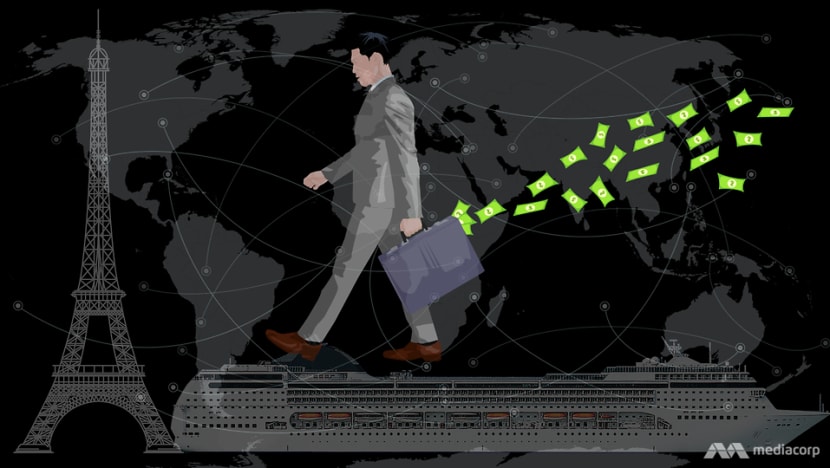
Paris, cruise ships and fake notes: This scam had it all. (Illustration: Rafa Estrada)
SINGAPORE: Inspector Ho Lei Siang was playing with his one-year-old daughter the night of Sep 2, 2017, when he got a call to report to his police division headquarters in Clementi.
As a senior investigation officer tackling commercial crimes, the now 33-year-old didn’t think twice about answering these late-night call-ups and leaving his family behind.
At that point, he had been in the job for about seven years. His wife, who used to work in investigations at the Central Narcotics Bureau, was understanding. He knew the activation meant the case was urgent.
INSP Ho confirmed this when he heard the brief: Two men had fled with S$1.5 million in cash from an office on Alexandra Road. This happened about three hours ago, so there was still hope of recovering the “huge sum” of money.
“The first thing that came to our mind was: This person was trying to bring this money out of the country as soon as possible,” he told CNA in the division headquarters recreation room, rarely used but furnished with a recliner, television and gaming console.
“We were fighting against time.”
Over the next four days, dozens of police officers would embark on a relentless quest of combing restaurants, speaking to taxi drivers and sifting through hours of closed-circuit television (CCTV) footage.
INSP Ho, the lead investigating officer, would spend the next few days mostly camped in his cramped office, especially as his Woodlands home was an hour away by train. He had gotten used to four hours of sleep anyway. “It’s already a norm for me,” he said.
But as he tirelessly chased the trail of the missing cash, nothing could prepare him for what he would eventually unravel: A transnational crime web involving cruise ships, mobsters and fake Euro notes.
“I feel this whole case is like a drama,” he added. “This is one of the most unique cases I have ever done.”
FROM PARIS, WITH LOVE
Like every drama, this one had its protagonists too.
Hours before INSP Ho was activated, Romanian Iosif Kiss, 40, and Frenchman David Weidmann, 37, entered the Alexandra office of Oceanic Group, a firm that deals in the buying and selling of non-commercial vessels like yachts and cruise ships.
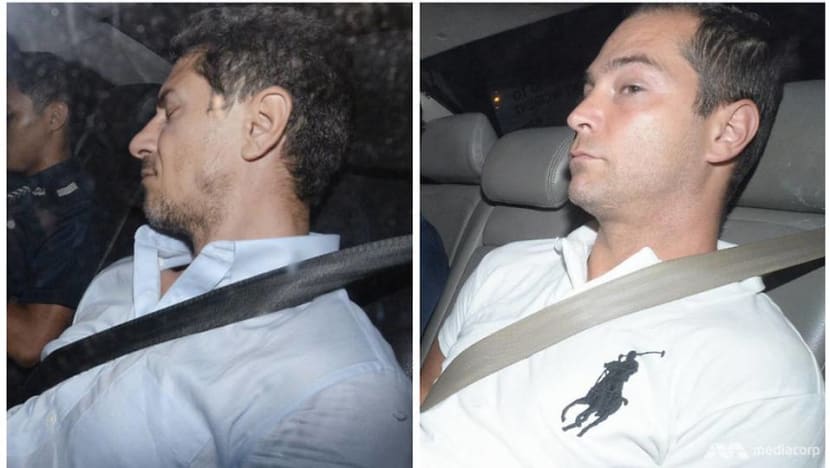
Oceanic had brokered a deal involving a foreigner buying a S$50 million cruise ship. The agreement was that Oceanic would get a deposit of €3.5 million (S$5.3 million) from the buyer’s representatives in Paris, and simultaneously pay S$1.5 million in commission to the representatives’ agents in Singapore. It was agreed that the sums would be paid in cash.
In a hotel room in Paris, Oceanic managing director Chui Mun Yew received a duffel bag filled with Euro notes. He called his staff in Singapore to release the commission to Kiss and Weidmann. Both parties had earlier verified the cash amounts.
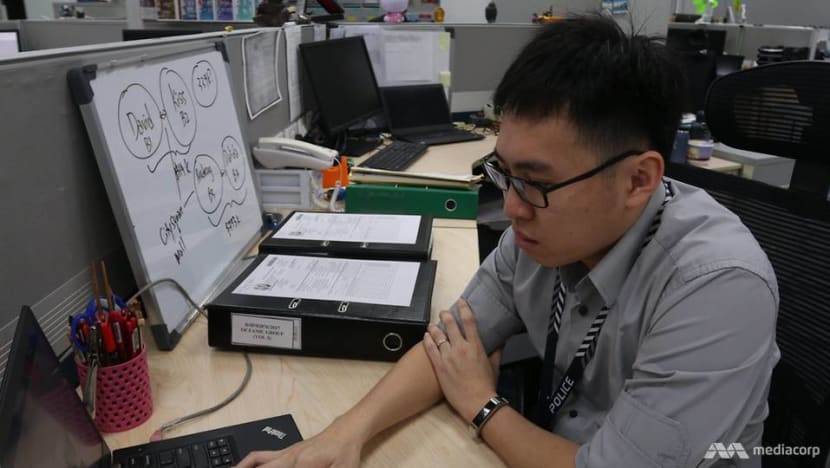
As Kiss and Weidmann left Oceanic’s office in Singapore at about 7.43pm with S$1.5 million in a suitcase and briefcase, Mr Chui sat in the Paris hotel lobby and unzipped the duffel bag. His eyes widened in horror when he saw the words “PLAY NOTES” stamped on the crisp Euros.
Oceanic staff tried to contact the pair but failed, so they extracted CCTV footage and made a police report at about 10.16pm. INSP Ho was on the way in. The chase was on.
ON THE HUNT
Within minutes, police issued a lookout alert with pictures of Kiss and Weidmann to counterparts like the Immigration and Checkpoints Authority (ICA). At the same time, officers started mapping out the route they might have taken.
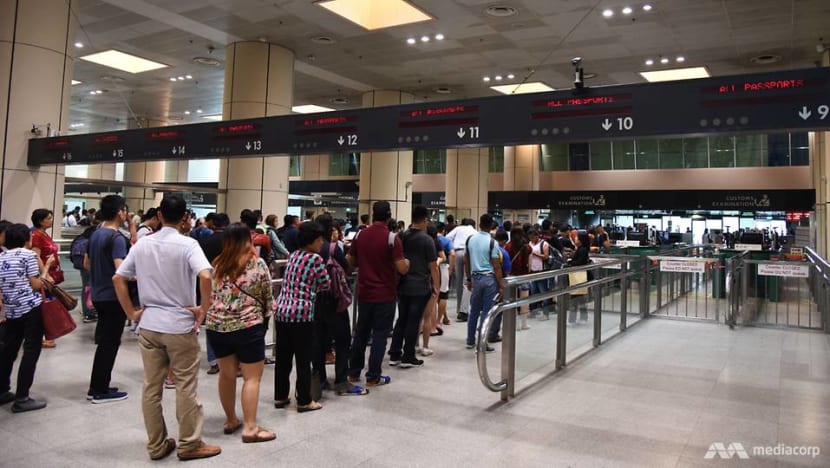
The starting point was the CCTV footage provided by Oceanic, which showed the men taking a taxi after leaving the office. Police tracked the taxi driver and discovered that they alighted near Mustafa Centre.
Officers spent the entire night speaking to people in houses and lodgings in the area, and managed to spot the pair in CCTV footage they reviewed at one hotel. As things started to get clearer, news came in that ICA officers had arrested Kiss and Weidmann at Woodlands Checkpoint.
THE PLOT THICKENS
INSP Ho rushed to the checkpoint to interview the men, but did not find the cash on them. “The checkpoint was not the ideal place to conduct a deep search,” he said.
Back at the station, officers found about S$400,000 – in stacks of S$50 and S$1,000 notes – stashed in their boxer briefs. But there was still about S$1.1 million missing. The clock was ticking.
“That aroused our inquiries,” INSP Ho said. “Where did the money go? There must be someone else.”
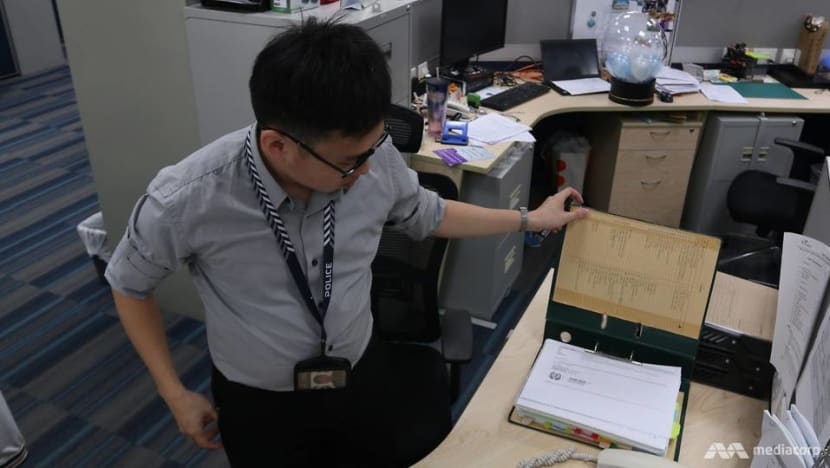
The suspects stayed silent, so INSP Ho and his team had to work backwards. “If they refuse to talk, you can only go back to the traditional way of investigation: Find out how they got to the checkpoint,” he added.
Through ground enquiries, police found that the pair had taken a bus to the checkpoint from a stop near their hotel. But there were still gaps in the timeline: Did they go somewhere else before boarding the bus?
A BREAKTHROUGH
While investigations intensified on the ground, INSP Ho cranked up the heat on the suspects. “We told them the facts straight,” he said. “There’s no denial that you went and took the money. You cannot run.”
Still, Weidmann refused to cooperate, shifting the responsibility to Kiss and stating that he was there only to accompany him. “Here, we cannot whack them,” INSP Ho added. “We have to use objective evidence.
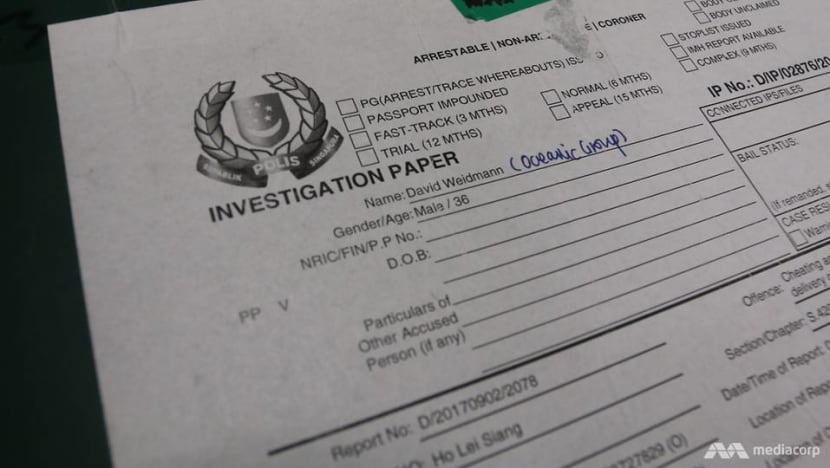
“Of course, I told Kiss what David is saying: He is pushing everything to you, so you will (take the blame). So, it’s better for you to cooperate with us. That is when Kiss decided to talk a bit more.”
Kiss claimed all he could remember was that they had visited an Indian restaurant with a statue inside. The information was valuable but vague. “There are too many Indian restaurants and too many statues in those restaurants,” INSP Ho said.
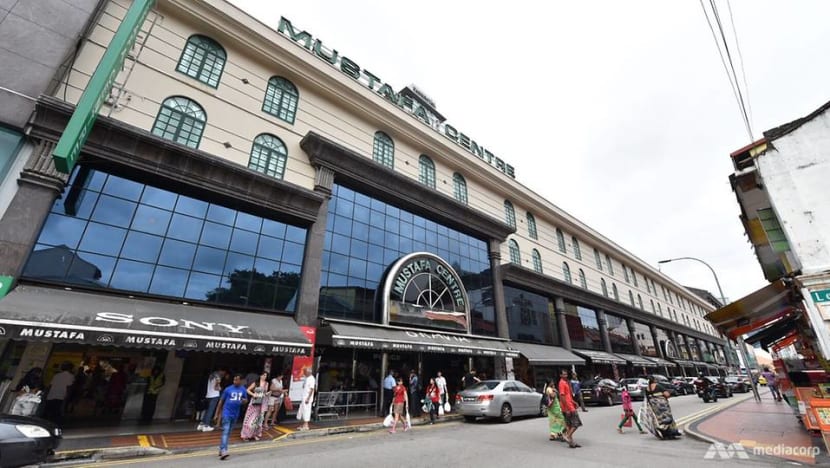
The next day, officers focused their investigations in a triangle-shaped area marked by the hotel, bus stop and Mustafa Centre. They checked all the restaurants in the area and examined their CCTV footage.
Kiss was also brought to the scene to identify the restaurant. He picked out a few, but officers took it with a pinch of salt. The breakthrough came when workers at one of these restaurants said they recognised the suspects. This was confirmed by CCTV footage showing the men entering with their luggage.
READ: Singapore police’s new anti-scam centre wants to hit scammers where it hurts
To ensure it was really them, officers questioned the staff further and were told that the men had bought a glass of Coca-Cola which costs S$7. It was a unique identifier, and details on the receipt matched the time stamp on the CCTV.
The police had gotten their men, and the gap in the timeline had been filled. “From the CCTV, we could confirm that David had left the restaurant (with the luggage),” INSP Ho said. “The restaurant is actually opposite City Square Mall.”
NEW PLAYERS
Officers looked through the mall's CCTV footage and found that Weidmann had entered the basement toilet with a piece of luggage before exiting empty-handed. Also in the footage, they saw a different man enter with one suitcase and leave with two, before joining up with another woman.
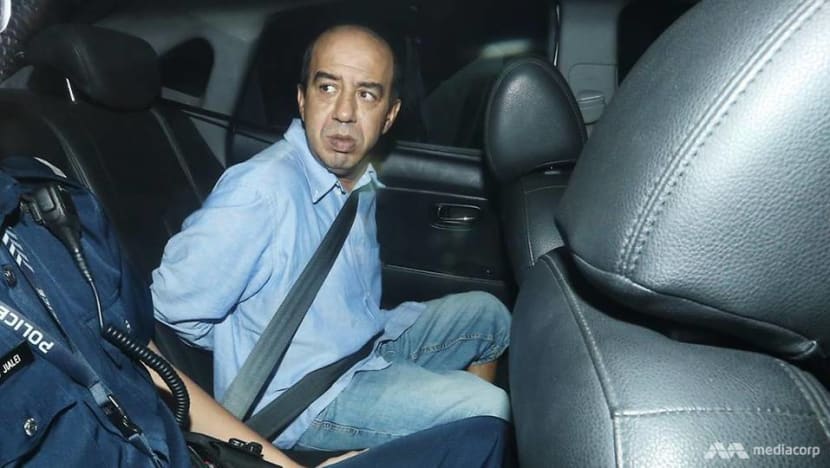
This pair would later be identified as Dutchman Nikolic Predrag, 46, and Frenchwoman Nikolic Dalida, 36.
“A day had passed and we were fighting against time again,” INSP Ho said. “We didn’t have anything; only their image and attire.”
Officers hit the ground again, guessing that the pair would likely take a taxi given the large amount of cash they were lugging around. This turned out to be true when a cabbie said he had dropped them near Marina Bay Sands (MBS).
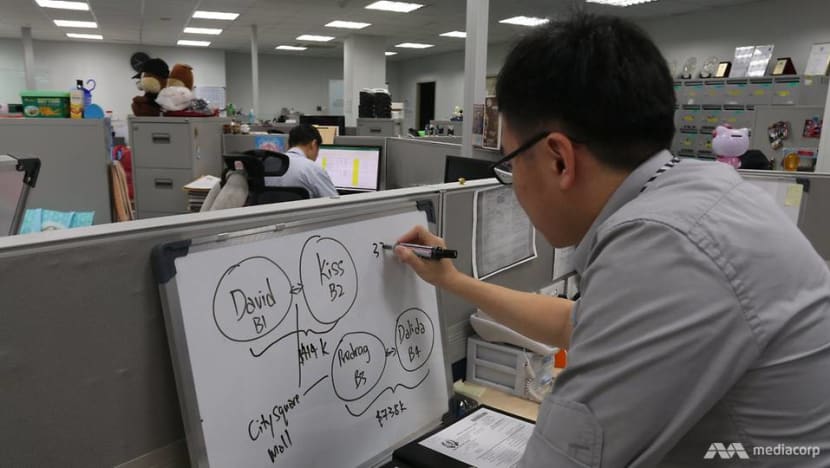
Police searched the area but could not find them. Nobody had seen them either. It was a dead end, but INSP Ho didn’t give up. He discovered that the pair had used MBS as a decoy to cover their tracks.
“We checked back the CCTV and found that they actually took another taxi to the Grand Copthorne Waterfront Hotel,” he said. “There was a lot of time wasted.”
TICKING THE BOXES
But before officers could arrest them, they needed to ensure the circumstantial evidence was watertight. “We have to make our assessment,” INSP Ho said. “If we get them, but they have nothing with them, what’s the next course of action?”
On Sep 5, police descended on the Grand Copthorne, speaking to staff to corroborate the pair’s identities and check-in times. It emerged that Predrag and Dalida had not checked out, meaning the cash was probably still with them.
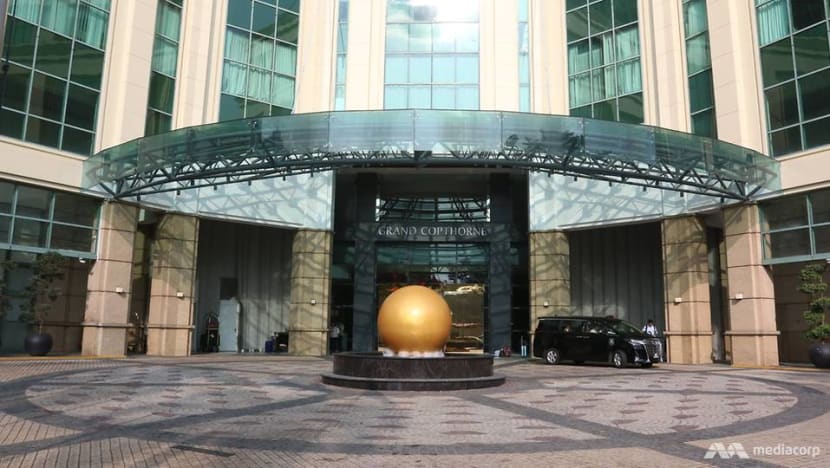
Officers got the green light to storm the room.
They waited for the wee hours so guests would not be alarmed. They covered all escape routes, including the possibility that the pair would jump out of their window. They asked staff about the locks on the hotel doors.
When they were told that the door could be latched from inside, officers went up with a heavy-duty cutter. They unlocked the door silently, cut the lock swiftly and burst into the room. Predrag and Dalida were jolted from their sleep.
Police seized about S$740,000 from the room, but the rest had been remitted and could not be recovered.
Dalida said she had followed instructions from France and given the remaining sum to an unknown man at Serangoon Road. This man, later identified as Muhammad Shafee Mohamed Anees, remains under investigation.
READ: Foreign pair jailed for involvement in S$1.5m vessel purchase scam
READ: 2 men linked to scam jailed after trying to leave Singapore with S$400,000 hidden in underwear
On Jun 25 last year, Predrag and Dalida were each jailed for two years and six months after pleading guilty to dealing with the benefits of criminal conduct.
Later that year on Aug 20, Kiss and Weidmann were each jailed for three years and eight months after pleading guilty to engaging in a conspiracy that facilitated criminal conduct.
MAFIA AND MAGIC DRAWERS
With that part of the case solved, INSP Ho proceeded to address what could have happened in France.
Investigations revealed that in March 2017, Oceanic’s Mr Chui had met one “Boris” in Paris to discuss the terms and conditions of the cruise purchase. “Boris” insisted that payments be made in cash, and rejected other methods like telegraphic transfer or cheque.
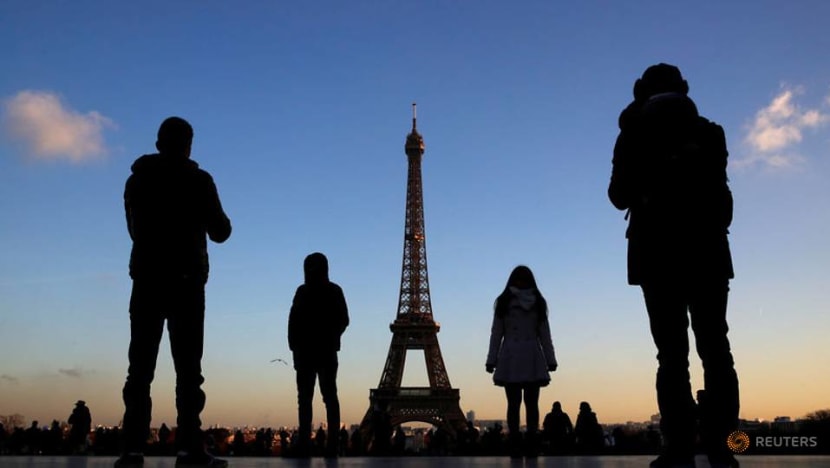
During the transaction, INSP Ho said Mr Chui’s associate had counted the €3.5 million cash deposit and verified its authenticity, a process that took more than an hour. After that, Mr Chui was told to put the stacks in a drawer. He didn’t seem to have a choice.
“What I understand from the victim is that there were a lot of bodyguards,” INSP Ho said. “They portrayed themselves like the mafia. (The victim and his associate) were also scared because they were in a foreign country. If things happened, nobody was going to save them.”
READ: Phone scammers exposed: A web of deceit across the region
READ: Internet love scams: ‘I got carried away with his words’ says victim as police strengthen task force
The drawer was shut before Mr Chui was told he could open it again to transfer the cash into the duffel bag. INSP Ho suspects the drawer had a mechanism that replaced the real notes with fake ones. Alternatively, the duffel bag could have somehow been switched out.
“We won’t know what happened in France,” INSP Ho added. “Only the French authorities can do that.”
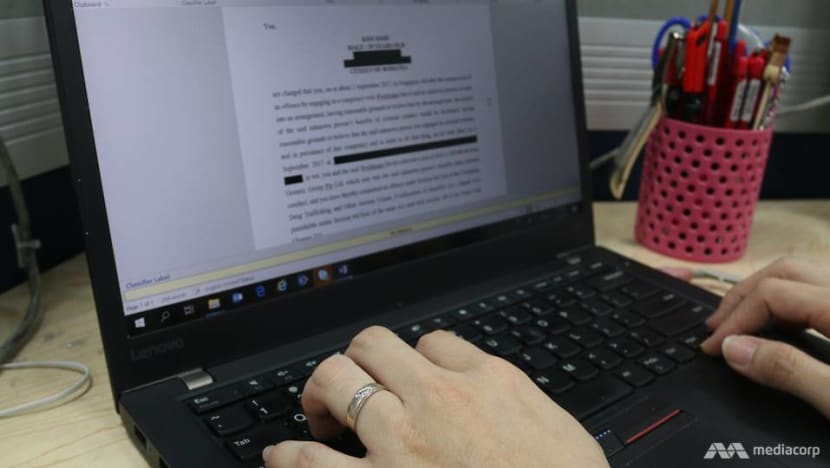
INSP Ho found out that French authorities were already looking into individuals such as “Boris”, confirming his hunch that the scam was orchestrated by a syndicate.
While the countries wanted to work together on the case, each had respective laws preventing the sharing of certain information. The French embassy also invited Mr Chui to lodge a report in Paris so French authorities could start investigations, but that didn’t happen for various reasons.
“If you ask me, I also wouldn’t go to France anymore,” INSP Ho said, laughing and highlighting that the case had gone on the news and on an episode of Crimewatch. “After (the culprits) are released, they would know who I am. If I went to France, I’d also be scared.”
PERSONAL SATISFACTION
Not that it bothered INSP Ho, who strived to “account for every single cent” as he knows what it feels like to fall on hard times.
He also credited his team for cracking the case, pointing out that it is one of his biggest to date due to its transnational nature and large sum involved.
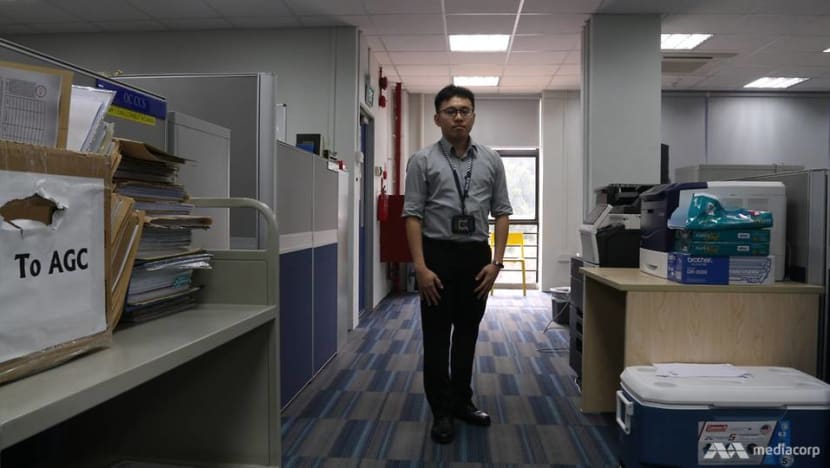
“For a normal citizen who has been scammed, every single cent is their hard-earned money. To some people, that money is important. I can sympathise with them,” he said.
“So if I don’t account for it, I cannot go to sleep. If I don’t account for it, the victim will be suffering.”
WATCH the Crimewatch episode:
More episodes of Crimewatch are available here on Toggle.












